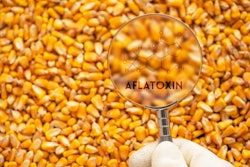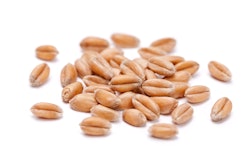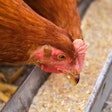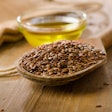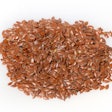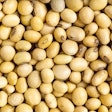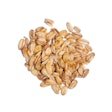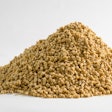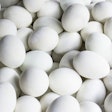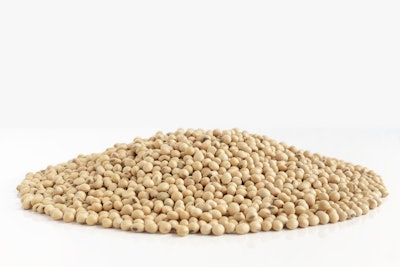
The poultry industry has seen significant advancements in recent years, with a growing focus on optimizing broiler nutrition to enhance growth, health and overall performance.
One of the key innovations in broiler nutrition is the use of full-fat extruded soybeans that remains largely unexplored. These soybeans, processed to retain their natural fat content, can be a valuable ingredient in modern broiler feeds, providing numerous advantages that benefit the birds and the poultry industry as a whole. In this article, we will explore the benefits of using full-fat extruded soybeans in broiler feeds.
What are full-fat extruded soybeans?
Full-fat extruded soybeans are whole soybeans that have undergone an extrusion process (cooking under extreme pressure) while retaining their natural oil content. The extrusion process involves subjecting soybeans to high temperature and pressure, resulting in a product that is easy to digest, safe to feed, and certainly nutritionally valuable for broilers.
Unlike conventional soybean meal, which is typically defatted, full-fat extruded soybeans offer the complete lipid profile of soy oil that is more difficult to become oxidized compared with free soy oil. This also provides logistics benefits for mills that cannot handle liquids.
Benefits of using full-fat extruded soybeans in broiler feeds
Improved digestibility
According to some research reports, full-fat extruded soybeans appear more digestible than conventional defatted soybean meal and certainly raw soybeans. The extrusion process neutralizes many of the antinutritional factors found in raw soybeans, such as trypsin inhibitors and lectins, making protein more available to broilers. This improved digestibility leads to better feed conversion rates and faster growth, ultimately reducing the time and resources required to raise broilers to market weight. Properly processed soybean meal of the right origin will also perform equally well in terms of protein supply.
Enhanced energy density
The natural oil content in full-fat extruded soybeans provides an additional source of energy in broiler diets. This extra energy helps broilers maintain body temperature and support their high metabolic rate during growth. As a result, broilers have more energy to allocate to growth, which translates to improved body weight gain and overall performance. This is deemed beneficial especially in modern genetics that appear to have lost their perceived ability to adjust their feed intake according to dietary energy concentration.
Amino acid balance
Full-fat extruded soybeans are an excellent source of essential amino acids, particularly lysine, just as normal soybean meal. The amino acid profile of soybeans complements the amino acids found in grains, creating a more balanced diet for broilers. However, this traditional harmonic balance is upended in very-low-protein diets that become increasingly dependent on free amino acids.
Reduced need for fat and oil additions
Incorporating full-fat extruded soybeans in broiler feeds can reduce the reliance on added fats and oils, which are often used to increase energy levels in conventional diets. In many cases, this not only lowers feed formulation costs but, according to anecdotal sources, it also decreases the risk of feed-related health issues in broilers, such as sudden death syndrome and wet droppings that some associate with the addition of excess free lipids (however, that may be true for any diet).
Environmental sustainability
According to some experts, using full-fat extruded soybeans in broiler feeds can contribute to a more sustainable poultry industry. By utilizing the entire soybean and retaining its natural fat content, less processing is required, resulting in fewer waste byproducts. This can lead to reduced environmental impact and a more efficient use of resources.
However, we should not forget that, in these early times, it remains difficult to assess which ingredient accurately and precisely is more sustainable compared to another with a similar profile. So, this remains an interesting argument for further discussion.
Improved feed pellet quality
Depending on the formula one has to begin with, the addition of full-fat extruded soybeans can enhance the physical quality of feed pellets. The natural oils in soybeans act as a lubricating and even binding agent, improving pellet durability and reducing fines. This means less feed wastage and improved feed efficiency in broiler production.
In general, full-fat extruded soybeans remain a valuable but hardly acknowledged addition to broiler feeds, offering a range of benefits that may go beyond improving broiler performance and feed efficiency. These soybeans are valuable nutrients, and also may contribute to a more sustainable and cost-effective poultry industry. As the poultry industry continues to evolve, the utilization of full-fat extruded soybeans can become part of the answer to those who cannot see a bright future for the animal industry.


